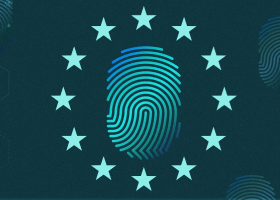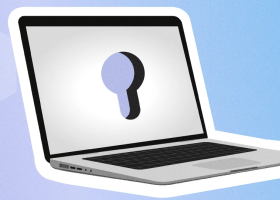Understanding the Role of Data Protection Officers (DPOs)
A data protection officer, or DPO, is a key figure in an organization’s data governance structure, ensuring that organizations comply with privacy laws and regulations designed to protect personal data. As such, DPOs design and implement data protection strategies that help organizations adhere to relevant privacy laws.
As organizations’ digital footprints expand, including areas where there is limited control (for instance, to vendors and supply-chain partners), DPOs play an indispensable role. From monitoring laws and corresponding internal processes to educating employees and identifying third-party vulnerabilities, a DPO is essential for mitigating data privacy risk and meeting compliance requirements in a rapidly evolving digital landscape.

Responsibilities of Data Protection Officers (DPOs)
The job of a DPO is multifaceted and encompasses several key areas. The primary functions of a DPO include the following.
Advising on Data Protection Impact Assessments (DPIAs)
DPIAs were formalized and popularized by the General Data Protection Regulation (GDPR). These assessments provide a framework to help organizations thoroughly analyze, identify, and minimize the data protection risks of a project or plan that involves the processing of personal data. The DPO advises when a DPIA is necessary and how to carry it out, as well as oversees the related assessments.
Compliance
The DPO maintains a deep understanding of the legal and operational aspects of data handling, staying abreast of the latest regulations and changes to existing ones and making sure that the organization’s systems and processes adhere to specific requirements. This includes conducting audits to assess and mitigate vulnerabilities and risks that are associated with data processing.
Serving as a primary contact point
The DPO serves as the main point of contact for several key constituents who have questions or concerns related to the organization’s data protection and privacy practices, including:
- Supervisory authorities
The DPO acts as the primary contact for supervisory authorities (i.e., data protection authorities) for all matters related to data processing to facilitate effective communication and compliance. They report data breaches, conduct consultations regarding data protection impact assessments (DPIAs), and address any inquiries from the supervisory authorities about the organization’s data processing activities. - Data subjects
For individuals whose data is being processed (i.e., data subjects), the DPO is a point of contact for any concerns or queries. This includes anything related to the processing of their data, exercising their data protection rights (e.g., access, rectification, erasure, data portability, etc.), and filing complaints. The DPO is required to provide any necessary information to data subjects in a concise, transparent, and accessible form. - Internal role within the organization
Based on their in-depth understanding of compliance requirements, the DPO serves as an advisor on the data protection and data privacy impact of new technologies or initiatives. They also evaluate and advise on relationships with third parties that are involved in data processing. As an advisor, the DPO makes sure that the organization is not in jeopardy of noncompliance violations by keeping all parties and processes acting in a lawful, fair, and transparent manner. The DPO works across various departments to embed data protection by design and by default into the organization’s culture and practices.
Training and awareness
The DPO drives awareness amongst employees about data protection and data privacy matters, their role in adherence to regulations, and the impact of noncompliance on the organization. This involves ongoing communication about updates to regulations and related policies, as well as training for staff who are involved in data processing.
Compliance with Various Privacy Laws
Data Protection Officers and the General Data Protection Regulation (GDPR)
To maintain compliance with the GDPR, an organization is required to appoint a data processing officer in certain circumstances. Specifically, a DPO is required in three specific scenarios.
1. Public authorities or bodies
All public authorities and bodies must appoint a DPO, with the exception of courts acting in their judicial capacity. This reflects the GDPR’s emphasis on the sensitive nature of data processing carried out in the public sector.
2. Large-scale regular and systematic monitoring of individuals
Organizations that, as a core part of their activities, carry out regular and systematic monitoring of individuals on a large scale need to appoint a DPO. This includes online behavior tracking and surveillance activities.
3. Large-scale processing of special categories of personal data
Organizations that process special categories of personal data on a large scale are required to have a DPO. According to Article 9 of the GDPR, “Processing of personal data revealing racial or ethnic origin, political opinions, religious or philosophical beliefs, or trade union membership, and the processing of genetic data, biometric data for the purpose of uniquely identifying a natural person, data concerning health or data concerning a natural person’s sex life or sexual orientation shall be prohibited.”
Even if not strictly required by the GDPR, many organizations choose to appoint a DPO to provide guidance to keep them compliant with data protection and data privacy requirements related to GDPR and other regulations.
What does the GDPR consider large-scale for purposes of requiring a DPO?
The GDPR’s definition of large scale is not explicitly quantified, so organizations must assess their data processing activities to determine if they meet the criterion, considering factors such as the number of data subjects involved, the volume of data processed, the duration of the processing, and where the processing takes place (i.e., what state or country). The criteria that constitute large-scale is intended to be flexible and context-dependent, allowing organizations to consider the specifics of their data processing activities. However, several factors and examples can guide organizations in determining whether their data processing is considered large-scale. Processing can be considered large-scale if it includes:
- Patient data
- Personal data for behavioral-based advertising
- Real-time geolocation data of customers
- Travel data of individuals using public transport systems
What are the roles of a data protection officer according to the GDPR?
According to the GDPR, the DPO must be completely independent and report to the organization’s senior management, with the organization’s controller, or not provide any instructions related to how they conduct their tasks. The GDPR outlines specific duties for DPOs, emphasizing their role in safeguarding personal data and upholding the privacy rights of individuals. The key responsibilities outlined for DPOs under the GDPR are as follows:
Acting as a Point of Contact
DPOs are the point of contact for data subjects regarding all issues related to their personal data and the exercise of their rights under the GDPR. This means the DPO must be accessible to individuals with inquiries about the processing of their data, those who wish to submit complaints, or anyone who wants to exercise their rights under the GDPR (e.g., data access, correction, and deletion). In addition, the DPO represents the organization in dealings with the supervisory authorities from different EU states. This includes consulting on matters related to data processing and compliance, reporting data breaches, and cooperating with authorities during investigations or audits.
Advising on Data Protection Impact Assessments (DPIAs)
DPOs are tasked with advising the organization with regard to when and how a DPIA should be conducted. The DPO provides expertise on the methodology of conducting DPIAs, assists in gathering the necessary information, and advises on mitigating identified risks to data protection.
Maximizing Confidentiality and Security
DPOs play a crucial role in advising on and maximizing the confidentiality, integrity, and security of the personal data processed by the organization. They are involved in implementing and reviewing security policies and measures that protect data against unauthorized access, disclosure, alteration, and destruction.
Monitoring Compliance
One of the main duties of a DPO is to manage GDPR compliance, including oversight of the implementation of data protection principles, policies, and procedures within the organization. DPOs are expected to perform regular audits to confirm organizational compliance and address potential issues proactively. They also oversee the training of staff who are involved in data processing operations and related audits.
Record-Keeping
DPOs are responsible for maintaining comprehensive records of data processing conducted by the organization. Information to be retained includes the purpose of processing, data sharing, and retention. These records must be readily available to present to supervisory authorities to demonstrate compliance with the GDPR.
Examples of Other Laws that Require a Data Protection Officer
Other privacy laws around the world have requirements similar to the GDPR for a DPO, or otherwise encourage the designation of a similar organizational role. The following are several examples that reflect a growing global understanding of the importance of having a dedicated role within organizations to oversee compliance with data protection and privacy laws, manage data protection risks, and act as a point of contact for regulatory authorities and data subjects.
California Privacy Rights Act (CPRA)
The CPRA does not explicitly require the appointment of a DPO. However, businesses subject to the CPRA are expected to implement measures to comply with the law’s requirements, including managing consumer data requests, conducting risk assessments, and demonstrating their commitment to data protection for consumers’ sensitive information. Fulfilling these functions often necessitates a role similar to a DPO.
Brazil—LGPD (Lei Geral de Proteção de Dados)
The LGPD closely follows the GDPR, including the requirement for certain organizations to appoint a DPO (known as Encarregado in the LGPD). Any organization processing large volumes of personal data or data of a sensitive nature is required to designate a DPO to act as a liaison between the Brazilian regulator, data subjects, and the organization.
Canada—PIPEDA (Personal Information Protection and Electronic Documents Act)
PIPEDA does not explicitly require the appointment of a DPO, but it does recommend that organizations designate an individual or individuals responsible for ensuring organizational compliance with the law’s provisions. This role is functionally similar to a DPO. It focuses on privacy compliance and acts as a point of contact for privacy matters.
Singapore and Malaysia —Personal Data Protection Act (PDPA)
The PDPA in Singapore and Malaysia require the appointment of a DPO for organizations that process large amounts of personal information.
Thailand—Personal Data Protection Act (PDPA)
Thailand’s PDPA requires data controllers and processors to have a DPO when the processing puts the rights of the data subjects at risk.
Turkey—Law on Protection of Personal Data (Law No. 6698)
Turkey’s data protection law requires data controllers to appoint a DPO under certain circumstances, such as when they process sensitive personal data.
United States—Health Insurance Portability and Accountability Act (HIPAA) While HIPAA does not explicitly mandate a DPO, it does require covered entities to have a Privacy Officer.
Guidance on Appointing and Working with DPOs
Appointing DPOs
The following are several key steps to take when appointing a DPO.
Identify the need
Determine if the organization is required to have a DPO or if the position is being filled voluntarily to support data protection and data privacy initiatives.
Define the role
Document the responsibilities of the DPO, including those mandated by regulations and those that address the specific needs of the organization.
Choose the right person
Confirm that the proposed DPO has adequate expertise in data protection and data privacy laws and best practices.
Formalize the appointment
Document the appointment of the DPO, including their role, responsibilities, and how they fit within the organization’s governance structure. Make sure that the DPO has visibility to your executive team, should potential compliance issues arise. Notify the relevant authorities of the DPO’s contact details.
Working with DPOs
A few important considerations when working with a DPO are as follows.
Communicate with the DPO regularly
Establish clear protocols for communication between the DPO, staff involved in data processing, and management.
Involve the DPO in relevant discussions
Include the DPO in any discussions or decisions related to data protection and data privacy, such as new projects or processes that involve personal data or potential data breach vulnerabilities.
Position the DPO within the organization
Make sure that the DPO reports directly to the highest level of management and has access to all data processing personnel and operations within the organization.
Respect the DPO’s independence
Others in the organization cannot interfere with the DPO’s work, and they should not be penalized or dismissed for performing their tasks.
Support the DPO
Make it clear what authority the DPO has, who they report to, and what resources need to be made available to them so they can fulfill their responsibilities.
Added Value from Data Protection Officers
Whether they are mandated by applicable regulations or not, organizations that handle sensitive personal information are advised to appoint a DPO or equivalent to oversee data protection and data privacy. The roles and responsibilities outlined in the regulations provide effective guidelines for the position. The good news is that there is some flexibility as the function can be filled by a dedicated person, or someone on the team can support the position as part of their other duties, as long as the DPO is empowered to work independently. Regardless of how the function is performed, having a DPO on the team elevates data protection and data privacy.
Egnyte has experts ready to answer your questions. For more than a decade, Egnyte has helped more than 17,000+ customers with millions of users worldwide.
Last Updated: 19th April, 2024



